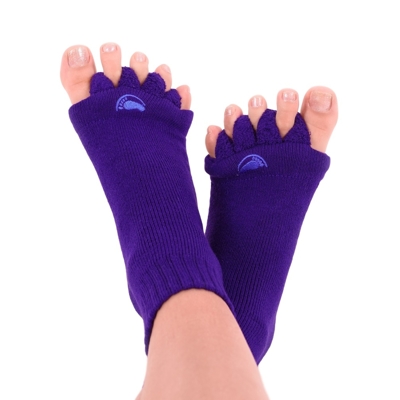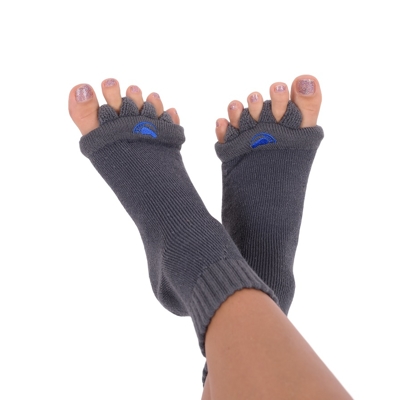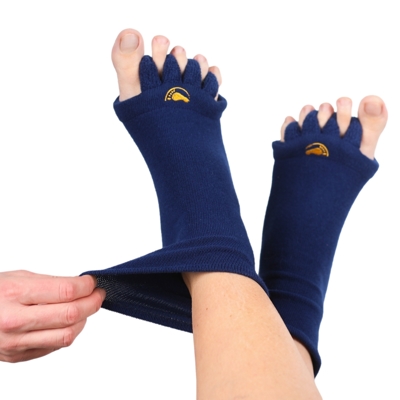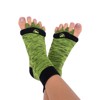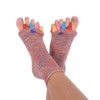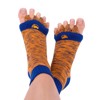How to get rid of plantar fasciitis

It may be that you can hardly put your heel down due to an unpleasant, sharp pain. It goes away after a while, but often quickly returns. Yes, this is plantar fasciitis, and it is affecting more and more people besides runners. What is behind it, and especially, how do you get rid of it? We discuss this in the article.
What is plantar fasciitis?
Plantar fasciitis, or inflammation of the plantar fascia, which is a fibrous tissue along the bottom of your foot, is a very common foot complaint, especially in runners. But it concerns anyone who overloads their legs not only because of excessive activity but also because of excess weight. The plantar fascia is a sinewy tissue, which connects the individual toes to the heel bone. This is where the problem occurs. As a result of overwork, the heel becomes inflamed and produce unpleasant pain, which can be a problem. Often, sinew inflammation is misdiagnosed as a heel spur, which is another type of complication in the form of growths on the heel.
You can read more about plantar fasciitis and its causes in our article Plantar fasciitis and painful walking.
Who does it most often affect?
• Runners and other athletes who put a lot of stress on their feet
• Overweight or obese people
• People who start the day with some physical activity
• People with shortened calf muscles or Achilles tendons
• People suffering from complications with the foot arch (flat foot)
• People wearing inappropriate shoes that put the foot into the wrong position
How do I get rid of plantar fasciitis as quickly as possible and for good?
Here are the five most effective tips:
1) Peace of foot, peace of mind
Whether you are an active runner or otherwise, you need to rest your feet, preferably in a raised position. It is important that they do not swell, because blood that accumulates in the legs promotes inflammation.

2) Orthopaedic aids as treatment and prevention
If you have yet to hear of custom orthopaedic insoles, then the time is now. These products can help during treatment as well as preventively. Our Foot Alignment Socks play a similar role. Simply wear them a few minutes a day and enjoy a little rest, and you’ll see the result after a few weeks. Your legs will be relaxed, and you can avoid other complications such as flat feet and hammer toes.
If you have problems with the foot arch, doctors and physiotherapists will recommend wearing shoe insoles to support the foot arch in the correct position.
3) Icy relief
Cold helps with any inflammation of this type. Reach into the freezer for an icepack or packet of frozen peas and cool the painful spot. It should bring relief in a moment. However, do not place ice directly onto the skin, cover it with a cloth or a thin sock. If the skin comes into direct contact with ice, it could cause burns.
If you don’t have ice or frozen vegetables on hand, you can use cold tap water. Try filling a plastic bottle and then roll it on the ground under your foot. This also helps you partially massage your foot.
4) Massage for relaxation and well-deserved relief
There is nothing easier than taking a golf ball and rolling it around the floor with the sole of the foot. It’s a great way to massage your whole foot, including the toes, and it brings almost instantaneous relief. Massage can also be done manually, for example, by your partner.

5) Exercising and strengthening
Don’t worry, we’re not going to take you to the gym. What we had in mind was physio exercises. There are many exercises you can use to strengthen your foot so that it becomes much harder to overstress in future.
However, we do not recommend exercising or strengthening if you have acute pain. If you have persistent pain, we ideally recommend seeing a doctor. Remember that plantar fasciitis has different symptoms for everyone. It is therefore up to you to consider whether it has developed to the extent that you cannot go without medical assistance. See a doctor or at least a physiotherapist to give you confidence in the appropriate choice of treatment.
Start off on the right foot every day
You can see that you can do most of the recommended tips on your own. That’s the same for any exercises you learn with a physiotherapist. If you combine all of the tips above, then not only will it help to reduce plantar fasciitis, it will also prevent recurrence and other foot complications and deformities.



